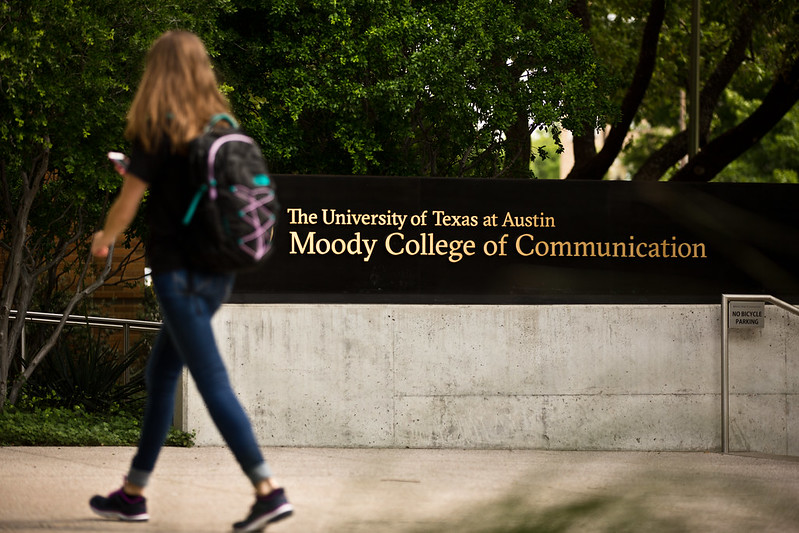Community
A vital part of our health care response to COVID-19 is community engagement that connects health care, new medical innovations and support for those in need.
When we understand how communities and social networks motivate and inspire people to act, we can make a dramatic impact on individual and collective well-being.
- Community engagement and mobilization have been essential in addressing smoking cessation, obesity, cancer, heart disease and other health concerns.
- Community engagement provides tools that health care workers, public health officials, economists and others can use to improve the quality and affordability of health care.
- It incorporates scientific expertise and strategies from multiple fields — sociology, political science, cultural anthropology, organizational development, psychology, social work and others.
UT Austin researchers are working to adapt, expand and innovate community engagement efforts in response to COVID-19.
Explore Research Opportunities
Your support will advance our research efforts to fight COVID-19 now and help minimize or prevent future outbreaks.
A large-scale study to determine how family interactions with community agencies can mitigate the effects of food insecurity on children during the COVID-19 pandemic and beyond.
Steven Abrams, Dell Medical School
Development and testing of an online, no-therapist, single-session intervention for family members of health care workers, equipping them to cope with anxiety associated with the COVID-19 pandemic.
Christopher Beevers, College of Liberal Arts
Jason Shumake, College of Liberal Arts
Adaptation of an existing longitudinal study of Austin-area youth to capture the long-term impacts of social isolation on academic outcomes, mental health and family dynamics.
Jessica Church-Lang, College of Liberal Arts
A study to understand how the risk profiles of individuals with substance abuse disorders or PTSD are negatively affected by COVID-19, informing alternative therapies to reduce relapse or overdose during social isolation.
Kasey Claborn, Dell Medical School
Suzannah Creech, Dell Medical School
Fiona Conway, Steve Hicks School of Social Work
Development of an interactive website to assist veterans with PTSD who are experiencing parent-child functioning problems, reducing the effect of stressors posed by COVID-19.
Suzannah Creech, Dell Medical School
A study to understand how health care is delivered in a time of crisis to patients with chronic illness, disability and challenges related to immune suppression, surfacing recommendations for health care delivery to these vulnerable populations.
Leorah Freeman, Dell Medical School
Ashlea Lucas, Dell Medical School
Ethan Meltzer, Dell Medical School
Jacob Cheadle, College of Liberal Arts
A study to investigate the effectiveness of speech, language and cognitive interventions delivered via telemedicine, improving accessibility to care during lockdown events.
Maya Henry, Dell Medical School & Moody College of Communication
Rajinder Koul, Moody College of Communication
Michael Mackert, Moody College of Communication & Dell Medical School
Robin Hilsabeck, Dell Medical School
A study to evaluate how COVID-19 testing is distributed geographically across racial/ethnic and income groups, providing data to confront existing inequities and to improve access to care and testing.
Elizabeth Jacobs, Dell Medical School
Alex Garcia, Dell Medical School & School of Nursing
Anjum Khurshid, Dell Medical School
Paul Rathouz, Dell Medical School
An experiential learning program that pairs students with science experts, catalyzing the innovation potential of undergraduate STEM students and expanding the impact of COVID-19 research.
Sophia Johnson, College of Natural Sciences
Andrew Ellington, College of Natural Sciences
Tim Ridel, College of Natural Sciences
Roopa Nishi Viswanathan, Dell Medical School
Adaptation of an online, cooperative game for elementary school children to encourage physical activity and social connection during school closures associated with COVID-19, ensuring teachers can help students remain physically healthy and academically engaged.
Christine Julien, Cockrell School of Engineering
Darla Castelli, College of Education
Development of a personalized technology platform that uses AI and health navigators to deliver content about the COVID-19 pandemic, providing the general public a trusted information resource.
Anjum Khurshid, Dell Medical School
Eliel Oliveira, Dell Medical School
Justin Rousseau, Dell Medical School
Ying Ding, School of Information
Min Kyung Lee, School of Information
Eric Nordquist, School of Information
Yan Zhang, School of Information
A study to determine how socio-cultural behaviors like language brokering may function as a strength or risk factor when combined with COVID-19-related stressors, providing insight on intervention programs to reduce health disparities facing Latino children.
Su Yeong Kim, College of Natural Sciences
A study of how psychosocial stress associated with the pandemic affects mental well-being in youth with severe mental illness, helping to decrease the risk for suicide and alcohol/substance abuse and reduce the burden of mental illness.
Elizabeth Lippard, Dell Medical School
Jorge Almeida, Dell Medical School & College of Liberal Arts
Steve Strakowski, Dell Medical School
Fiona Conway, Steve Hicks School of Social Work
A study to understand how disadvantaged women and infants are affected by the COVID-19 pandemic, allowing for current and future improvement in reproductive health interventions.
Leticia Marteleto, College of Liberal Arts
Abigail Aiken, LBJ School of Public Affairs
Development of a program to address workforce reentry and unemployment following critical illnesses like COVID-19, helping patients overcome the long-term secondary health effects that often persist after recovery.
Marissa Mery, Dell Medical School
Ben Coopwood, Dell Medical School
Garrett Key, Dell Medical School
David Paydarfar, Dell Medical School
Marissa Toups, Dell Medical School
Kristie Loescher, McCombs School of Business
Barbara Jones, Steve Hicks School of Social Work
A study on how case managers can use mobile technology to communicate with people experiencing homelessness during the COVID-19 pandemic, connecting them to needed health and social services.
Leticia Moczygemba, College of Pharmacy
A study to identify the traumatizing effects of hospitalization during the COVID-19 pandemic, surfacing data hospitals can apply to minimize the short- and long-term emotional stress experienced by patients and their families.
D Jeffrey Newport, Dell Medical School
Suzannah Creech, Dell Medical School
Julie Farrington, Dell Medical School
A study to describe health care professionals’ views and experiences working during the COVID-19 pandemic, identifying factors to improve emergency planning and working conditions.
Farya Phillips, Steve Hicks School of Social Work
Barbara Jones, Steve Hicks School of Social Work
Elizabeth Kvale, Dell Medical School
A study to characterize the food, social service and economic needs of affordable-housing residents, providing insights to improve support systems during times of crisis.
Diana Siebenaler, Dell Medical School
Development of guidelines for employers on how to best communicate during a pandemic, improving the professional, physical and emotional well-being of their employees.
Keri Stephens, Moody College of Communications
Matthew McGlone, Moody College of Communication
Radek Bukowski, Dell Medical School
A study using Health Justice AI to analyze expressive writing samples generated by the Pandemic Project, providing insights on inequities that can lead to divergent health outcomes in marginalized communities.
Pauline Strong, College of Liberal Arts
Phillip Barrish, College of Liberal Arts
Samuel Scott Graham, College of Liberal Arts
James Pennebaker, College of Liberal Arts
Jewel Mullen, Dell Medical School
A study to examine inequities experienced by African American and Latino populations in accessing resources to prevent the spread of, and receive treatment for, COVID-19 in their communities, identifying strategies to mitigate racial/ethnic inequities.
Carmen Valdez, Steve Hicks School of Social Work
Virginia Brown, Dell Medical School
Development of a mobile application that facilitates human connection and interaction in support of mental health, addressing the increased demand for mental care during social isolation.
Craig Watkins, Moody College of Communication
Giving to Research at UT Austin
Your contribution will support researchers at the top of their fields in community engagement and mobilization.

Moody College of Communication
UT’s Moody College consistently earns top rankings for research, teaching and excellence in creative work.

Responding to COVID-19
Our researchers are investigating the interplay of communication and technologies in the contexts of crisis, disaster and health.
